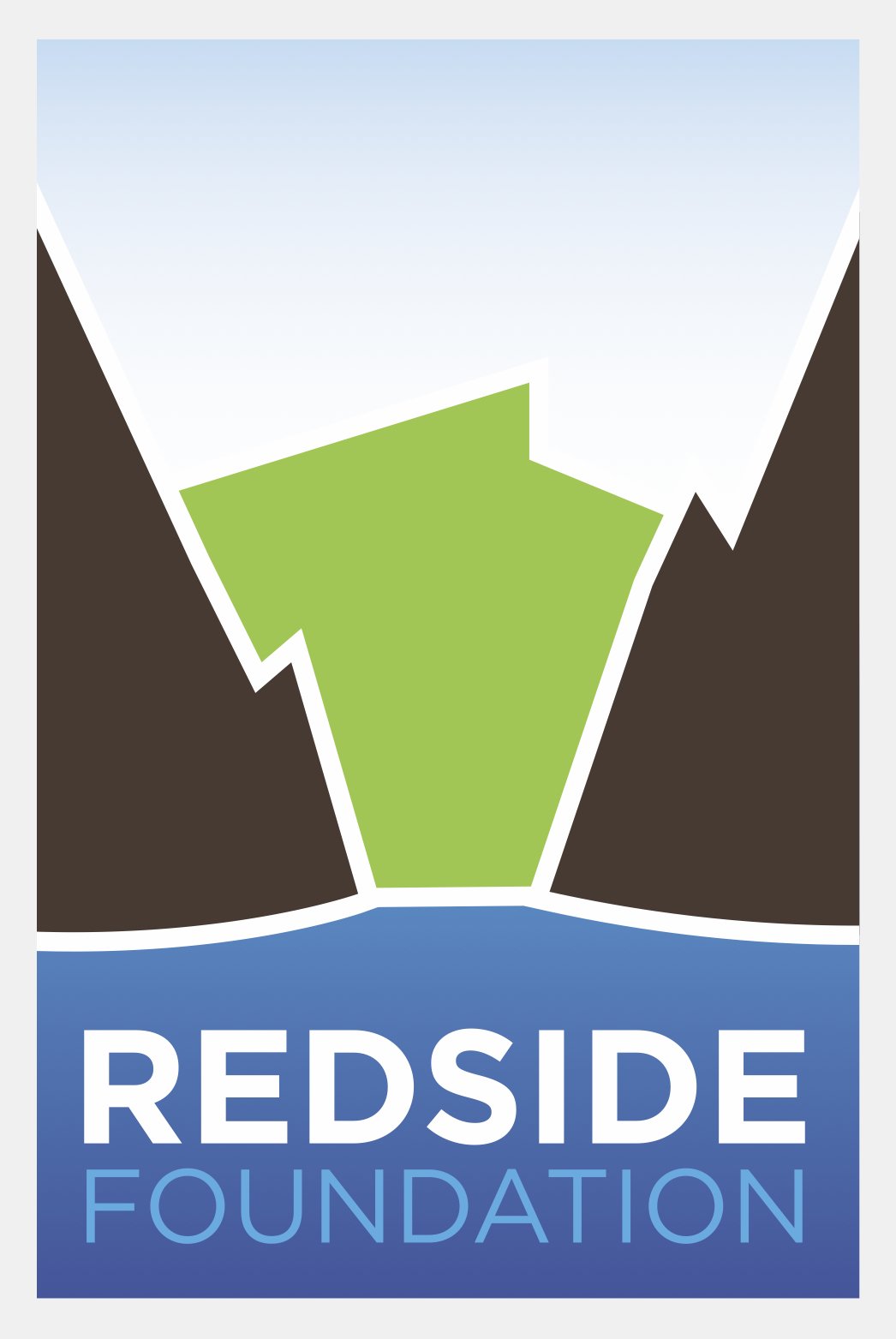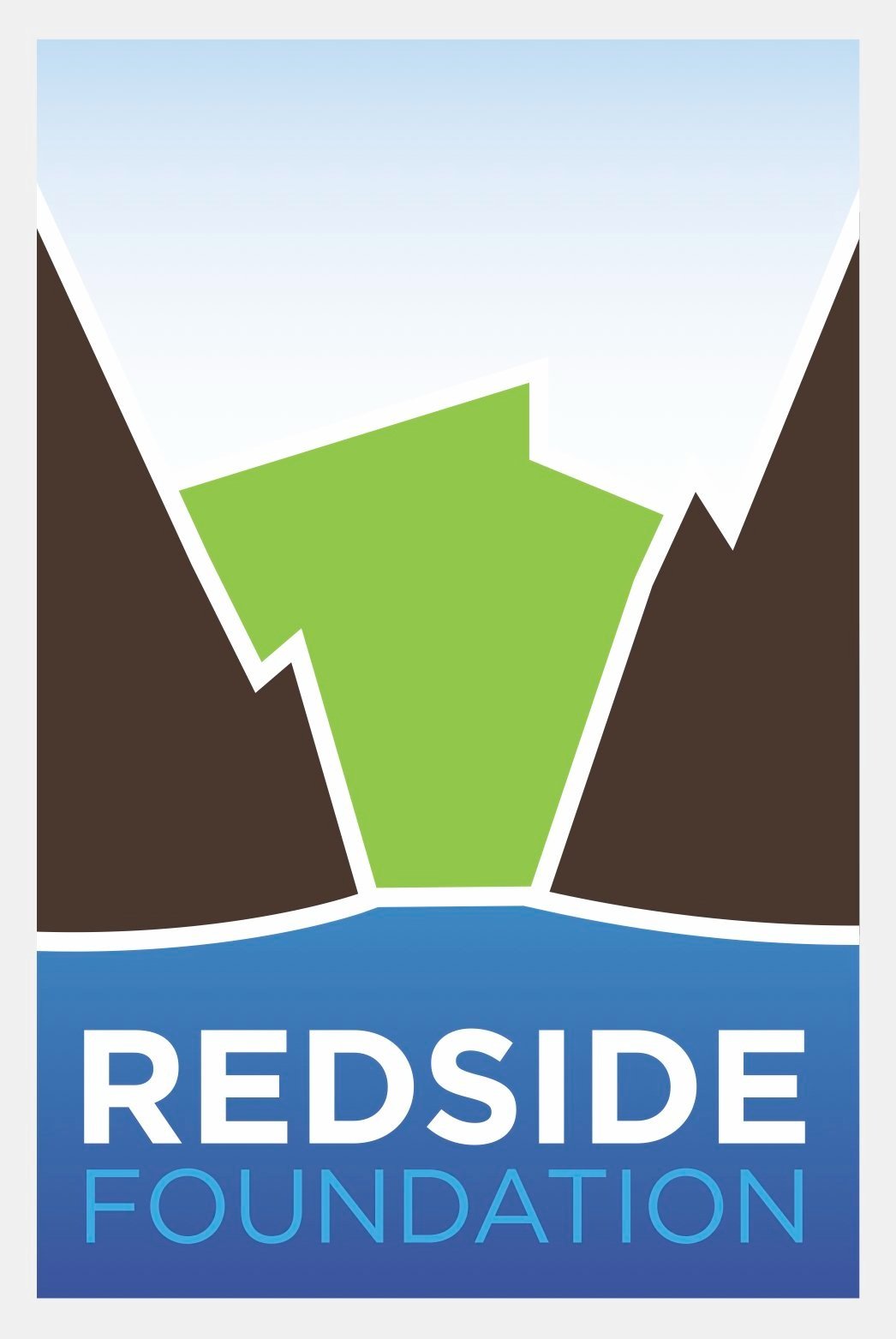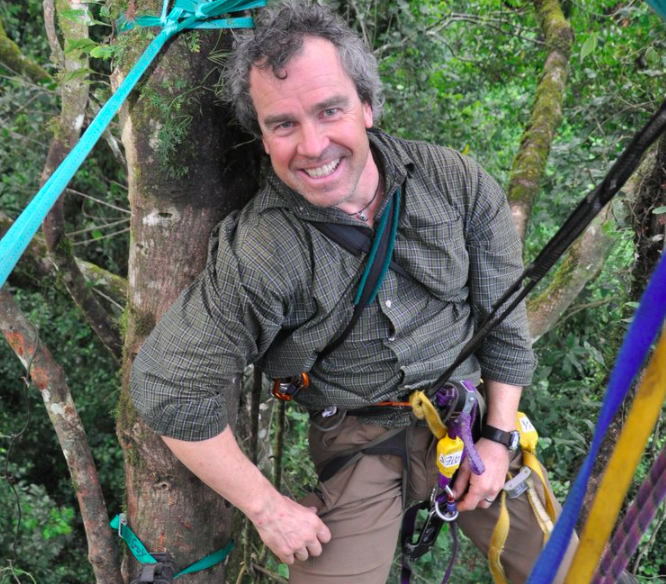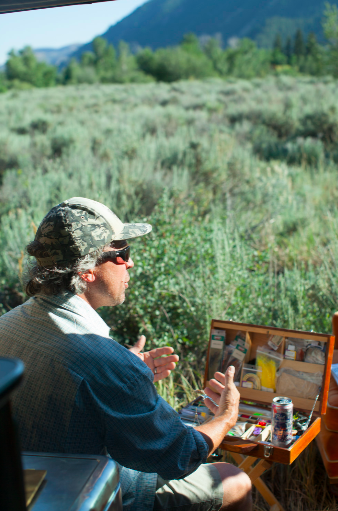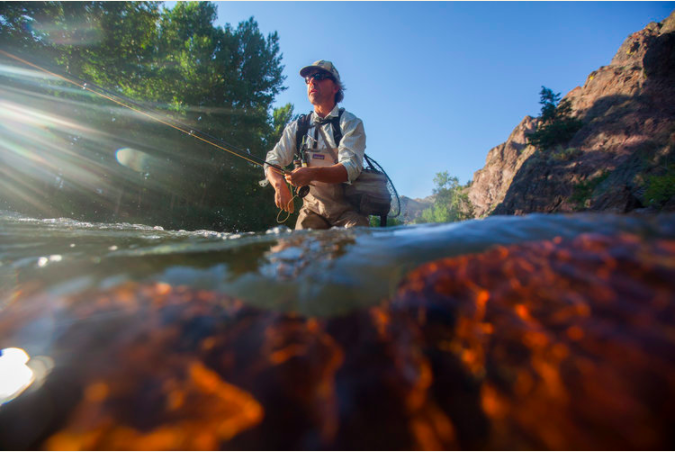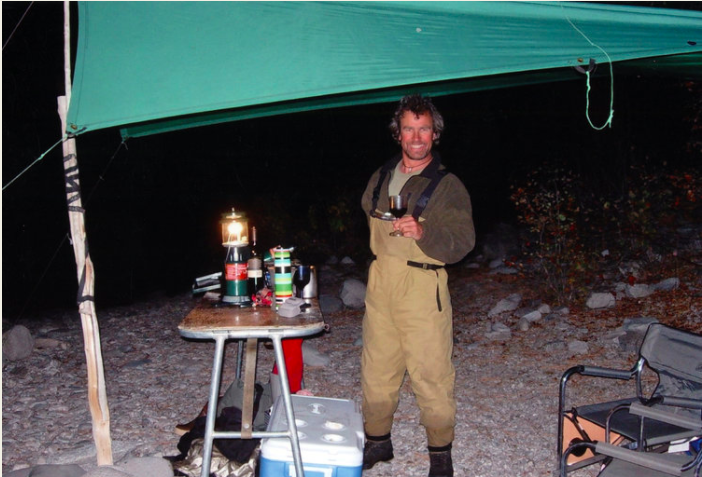GUIDE OF THE QUARTER: GUY ROBINS
Interviewed By: Redside Guide Liaison Courtney Smart
Courtney Smart: Where is your hometown, Guy?
Guy Robins: My hometown is in Ketchum, Idaho.
CS: Is that where you're from?
GR: No. Originally I'm from the east end of London.
CS: East end of London. Why Idaho? How did you end up here?
GR: I had some friends who lived here. They invited me to come and spend a winter here and visit them. I fell in love with Ketchum and Idaho and ended up moving here full-time and guiding here in the mountains and the rivers here in Idaho.
CS: What is your current job title?
GR: I don't think I have a single job title right now. I guide in the summertime and then in the shorter seasons here when I'm not guiding I have a small painting business. I work at a wine bar one night a week. I have a small mentoring program that I'm building.
CS: Where did you start guiding?
GR: I started guiding in the Scottish Highlands. I went to a boarding school up there that had a big outdoor education type program. That's where I got my love for rock climbing and kayaking and fly fishing and anything outdoor-related. Then my father had his own adventure school. In the summertime, I used to take all the skills that I learned at boarding school and put them to work helping my dad with his school. I'd take people kayaking in the summertime or fly fishing. I was about 15 when I started that.
He would send me off to Glenmore Lodge, which is the National Outdoor Pursuits training school in Scotland where I would get my certifications for being a kayak instructor and being a rock climbing instructor. Then I did all that through high school. Then after high school, I left Scotland and started traveling the world as a guide.
CS: Gosh. This mentoring program you mentioned is this based on what your dad's business was like? Explain your mentoring program.
GR: Basically, it's called Trout Scouts. Basically, it is kind of like a junior guide training type program for boys and girls. What we do we go to the river and we go fly fishing. We tie flies. It's basically teaching these kids outdoor skills, cooking, life skills, and kind of taking everything that I've learned in the last 40 years of being an international guide and crafting it more towards preteen and teen boys and girls here in the Wood River Valley.
CS: That's terrific. What a great opportunity for people. What do you think the greatest challenges are to a guide today?
GR: I think the greatest challenges these days are keeping yourself safe and strong on the river. It's really easy to get injured out there. That can certainly affect your career and your life. I think during the season just staying strong and healthy. Being a guide is not easy. It's stressful. You're dealing with different people every week and different people's needs. That can become exhausting after thirteen Middle Fork trips. Then lots of the guys would go on to be hunting guides and do the hunting camps in the Fall. It could be a long strenuous season both mentally and physically.
CS: That's my next question. What do you do during your guiding season to take care of yourself mentally and physically?
GR: I think getting lots of sleep is key. When you do have an opportunity for some down time, if you have to miss a trip, don't look at it as a bad thing. Take that time to reenergize yourself, get out in the wilderness by yourself, get together with your friends. Just do something different from what you've been doing for the whole summer.
CS: Right. Stay engaged.
GR: Yeah. Stay engaged. Maybe get on your bike and do something or go away with some other friends. Just keep yourself mentally strong and refreshed so you're ready to go back and do it all again.
CS: How do you manage leaving your family? Or coming back? Both can be hard.
GR: Now that I have a family I don't get out on the river as much as I used to but I have a very supportive wife and she understands that being a guide is a large part of who I am. Nowadays I get to do one or two river trips a year. It's always fun to get away and get back on the Middle Fork again and to see all of my friends and everything. Again, I always look forward to getting back and seeing my kids and hopefully in the future I'll be able to get them on the river and stuff.
CS: I can't imagine they wouldn't.
GR: Yeah. Little Sammy is starting to kayak right now. This will be his first summer of kayaking.
CS: That's great. How old is he?
GR: He's five.
CS: Oh my gosh. Perfect. When did you start kayaking?
GR: I started kayaking probably when I was about 10.
CS: Okay. He has a jump even on you.
GR: He's got five years on me! He just kayaked Silver Creek on Sunday.
CS: You've guided all over the world. If you had to choose one place to guide besides Idaho where would you go?
GR: It would probably be back in the Himalayas or Nepal or northern India.
CS: That's terrific. You trained a lot of guides over there for a short spell, right?
GR:Yeah. I was an outfitter out there in Nepal, northern India, and northern Pakistan for about 10 years. I trained lots of not just western guides who would come out there but also lots of Indian guides, Pakistani guides, Nepali guides. Predominantly Nepali guides because that's where our operation was based there in Katmandu.
We would be floating down the river and you'd get these boys just jumping off the sand dunes into the river and swimming up and climbing on the back of your kayak. You'd take them down these little rapids that hold on and they jump off and swim back to the beach. Over the years we got to know these kids pretty well. Like every time we came by they would jump on our kayak or let them jump on the boat. We'd fly through a rapid. Just so much excitement for them.
Then we started bringing them into the camps and they could come and wash dishes and we'd feed them dinner. Then when they were old enough we would bring them back to Katmandu and teach them English, give them some education and stuff.
We could train them as either river guides or treking guides. Whatever their interest was.
CS: So you've been a tracking guide, a fly fishing guide, a whitewater guide, a kayak guide, climbing guide. What type of guiding do you prefer to do the most?
GR: I love them all. I just love guiding period.
CS: It seems like guiding to you is interconnected with teaching.
GR: I mean, I love to ... We all have had mentors in our life. People that have influenced us. At different ages. Not just as a kid but as adults, people who have inspired us in different aspects of the sports we enjoy.
CS: Aside from your father who inspired you in guiding?
GR: Well, I've had some friends, I've had some teachers when I was at school who got me first guiding the fly tying and fly fishing and climbing and they took the time to mentor us and to encourage us to follow our passion.
Then throughout my life, throughout my travels, I've met other guides who inspired me and just different people traveling the world. You never know who you're going to run into. They're not all guides. Sometimes they're just people, clients. I've been inspired by, by their life story or the reasons that I'm guiding them or stories of their family and things like that.
CS: If either of your children were to become a guide what would be your number one piece of advice to them?
GR: I would probably say that the safety of your client is probably the most important thing.
CS: That's good advice.
GR: I think as a guide people look up to you to keep them and their families safe in an environment that's often totally hostile and unfamiliar to them. Don't let your ego get into your decisions and always err on the side of safety. Be able to come back another day. It's like all these Everest climbers who they turn back 100 feet from the summit.
CS: "Live to climb another day."
GR: But they live to come back and try Everest another day. I think just to make smart decisions. Don't let your ego or your bravado get into your decision making. At the end of the day you are responsible for the safety of your clients to make sure they have a good time but also a safe good time.
CS: Right. No fun if it's not safe. Thank you for your time today, Guy.
GR: You're welcome.
